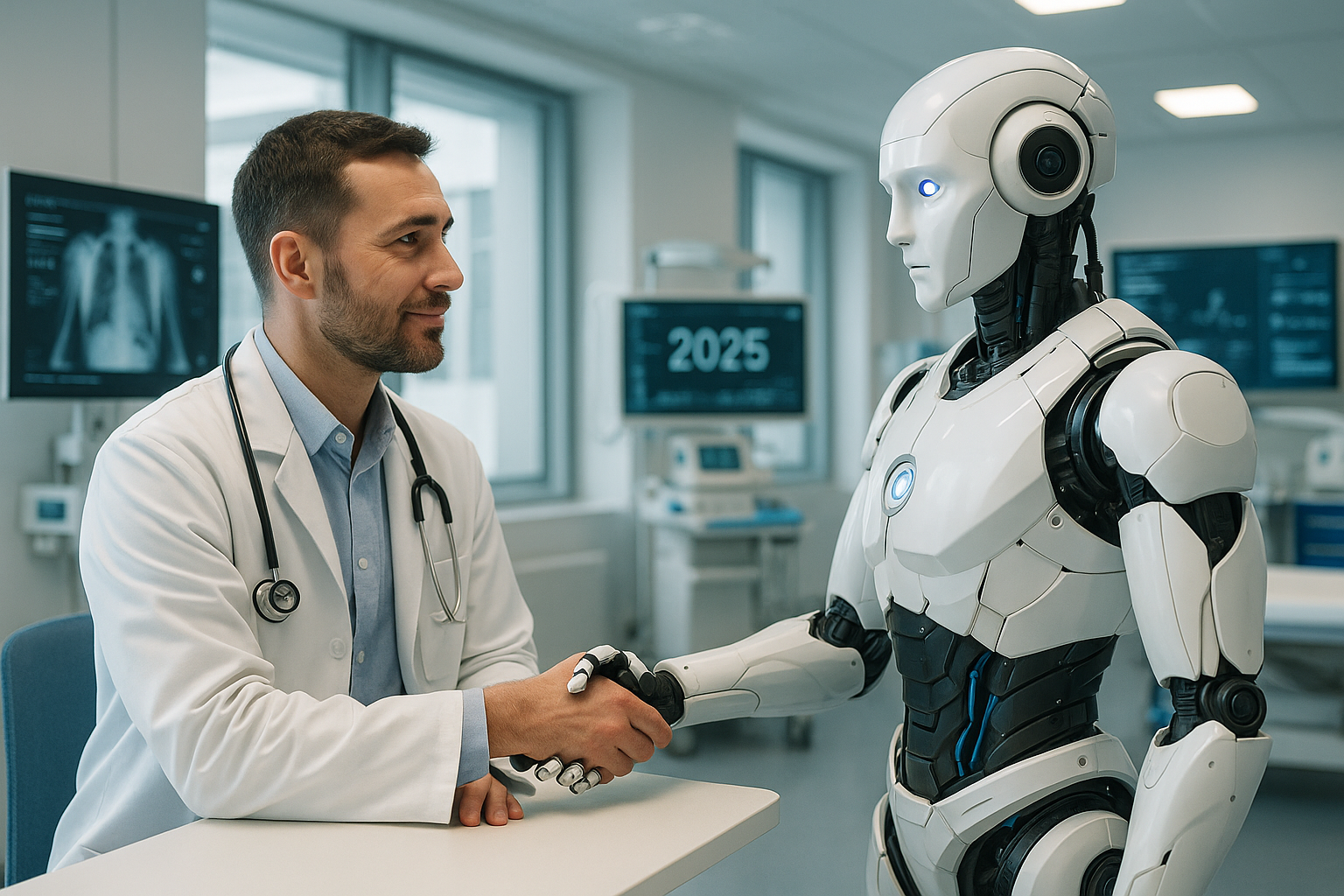It's the sort of question that gets tossed around every hospital tea room, board meeting and GP conference these days: is artificial intelligence coming for doctors' jobs? Here we are in 2025, and AI really is shaking up not just healthcare, but every industry worldwide. The thing is though, it's not in the apocalyptic, robots take over the world way you might have imagined. What's actually happening is a lot more down-to-earth: AI is becoming a pretty handy assistant, backing up real clinicians rather than muscling them off the stage.
The Current AI Landscape in Healthcare
Walk through any half-modern hospital or clinic these days and you'll struggle not to trip over a bit of AI in the wild. Roughly 80% of hospitals, plus a whopping 86% of wider healthcare organisations, report using AI for all sorts of tasks. This isn't some tech fad that'll fizzle out next year, either. AI is now firmly woven into the fabric of daily life.
Money-wise, the numbers aren't shy. The global healthcare AI market grew to an eye-watering $32.34 billion in 2024, and forecasts suggest it'll rocket past $430 billion by 2032. If that's hard to get your head around, consider this: about half of all US healthcare organisations are already trialling or rolling out generative AI tools across their operations. This is more than just hype; it's a structural overhaul.
How AI Is Being Used Right Now
The ways healthcare is using AI really run the gamut:
- Helping with Clinical Decisions: AI's turning up in diagnosis and risk prediction. The University of Cambridge uses AI to spot coeliac disease in seconds, saving patients from those endless waits for lab results. Meanwhile, over in Penn Medicine, AI flags patients at risk of long Covid for early care.
- Virtual Assistants and Chatbots: These digital helpers sort appointments, triage patients, and some even transcribe the entire appointment, all while taking a $3.6 billion-sized chunk out of global healthcare costs by 2025. Discover how our AI works.
- Robot-Assisted Surgery: AI-powered robots are making some surgeries sharper and recovery times shorter—a real show-and-tell of people and machines working together.
- Wearable AI Devices: Gone are the days of waiting for something to go wrong. These gadgets monitor your health in real time, and flag issues before they turn into major dramas.
- Making Admin Less Painful: AI's not just about whizz-bang technology; it's quietly sorting out records, billing and scheduling in the background. That frees up more time for the one thing even the most advanced AI can't do: the human side of care.
Every extra minute a doctor gets with a patient is a win.
Benefits and What AI Can't Do (Yet)
There's no denying the lift in efficiency. About 92% of healthcare leaders reckon generative AI is already streamlining operations, and 65% say it speeds up clinical decisions. With $13 billion in projected savings by next year, AI is giving healthcare budgets a much-needed break.
Still, let's not get carried away. AI is brilliant at crunching numbers, picking up patterns and flagging who's at risk. But ask it to break tough news to a family, untangle a complicated case, or show genuine empathy? You're still going to want a flesh-and-blood doctor in the room.
Doctors' Roles in an AI-Integrated Future
Forget all the 'replacement' talk. What's happening is more like a power-up: AI takes care of the routine data wrangling, so doctors can spend more time actually doing medicine, like fine-tuning treatments and having proper conversations with patients.
AI is also stepping in to take away some of those headache-inducing admin jobs. With robots managing bookings or repeat scripts, there's a little less paperwork in doctors' lives, but those human connections remain front and centre.
Ethical and Practical Challenges
Of course, it's not all smooth sailing. AI brings its own set of tricky problems. If the data it's trained on leaves out certain communities, the tech can end up making things worse, not better. There's also the question of trust: most AI systems act a bit like a black box, making decisions no one fully understands.
And then there's the privacy minefield. AI gobbles up lots of patient data, which always carries risk. And who gets the blame if an AI-aided diagnosis goes wrong. Is it the doctor? The software company? The hospital? The answer is still a bit fuzzy.
Future Outlook: Partnering with AI, Not Fighting It
Looking ahead, AI will only sink deeper into medical practice and get even better at nudging doctors in the right direction. But let's be clear: the heart of healthcare will still be real people making real decisions.
Expect newer tools popping up to help with mental health, targeted treatments, or even predicting health trends in the broader community. Still, at the end of the day, technology is just that, a tool. It can help, but it can't replace bedside manner or professional judgment.
Closing Thoughts
So, should you be worried about a robot taking your place? Not this year, and probably not next, either. AI is more about lifting the load. Analysing data, quickening processes, letting clinicians put their time and energy where it matters most: with patients.
It's a promising partnership, with a few curly challenges to sort out around ethics and responsibility. Navigating it carefully will be key for clinics big and small.
Bottom line? The future of medicine isn't some soulless robot uprising. It's people and clever tech, teaming up for the best possible care.
Sources
- AI Healthcare Statistics - docus.ai
- How AI is Reshaping Clinical Decision Making in 2025 - himssconference.com
- AI in Healthcare Statistics and Trends - openandaffordable.com
- AI in Healthcare Statistics - blueprism.com
- AI Transforming Global Health - weforum.org
.png)
